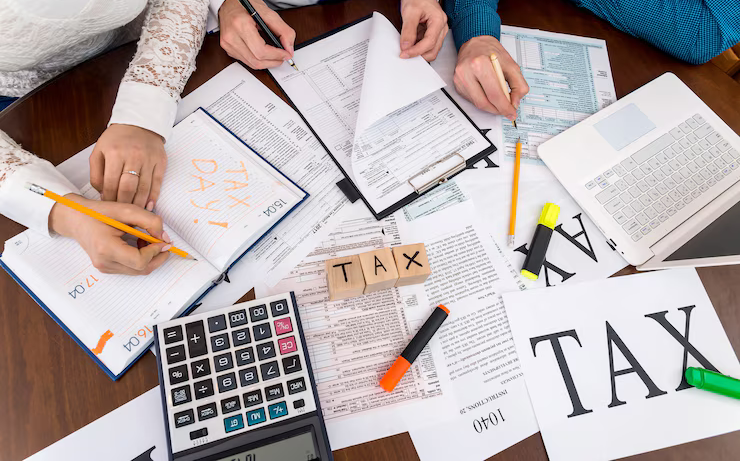
Navigating the world of taxes can feel overwhelming, especially for freelancers, small business owners, and the self-employed in the UK. If you’re managing self-assessment taxes for the first time—or even as a seasoned pro—understanding the process is essential to avoid penalties, claim appropriate allowances, and effectively manage your finances.
This guide aims to simplify the complexities of self-assessment taxes, equipping you with the essential knowledge and actionable tips to handle your taxes confidently. By the end of this post, you’ll know exactly who needs to file, the paperwork and deadlines involved, and how to reduce your tax liability.
Understanding Self-Assessment Taxes
The first step in managing your taxes is understanding the core details.
Who Needs to File Self-Assessment Taxes?
Self-assessment is the system used by HM Revenue & Customs (HMRC) to collect income tax. While taxes are typically deducted automatically for those on PAYE, self-employed individuals and small business owners need to manually report their income.
You’ll need to file a self-assessment tax return if you meet any of the following criteria:
- You are self-employed or a sole trader.
- You earned over £1,000 from self-employment during the tax year.
- You have additional untaxed income, such as rental income, tips, or income from investments.
- You earned over £100,000 in income.
- You’re claiming income-related child benefit while earning over £50,000.
Deadlines and Penalties
Mark these important deadlines in your calendar:
- Register for self-assessment by October 5th of the second tax year since starting self-employment.
- Paper tax returns must be submitted by October 31st.
- Online tax returns are due by January 31st of the following year.
- Payment of any tax owed is also due by January 31st.
Failing to meet deadlines can be costly:
- Late filing results in an initial £100 penalty, which increases daily after 3 months.
- Interest is charged on late payments.
HMRC representative emphasizes, “Meeting deadlines is crucial to avoid penalties; plan ahead and allocate time for your tax return.”
Preparing for Self-Assessment
Gather the Necessary Documents
Preparation is key to filing an accurate and stress-free tax return. Ensure you have the following documents:
- Records of your income, including invoices for self-employment earnings.
- Proof of business expenses, such as receipts and bank statements.
- P60 or P45 forms if you’ve received income from additional employment.
- Details of pension contributions or other deductions.
- Statements for rental or investment income and interest payments.
“Accurate record-keeping is the cornerstone of effective self-assessment tax management,” stresses Sarah Lee, a tax consultant at Entegrix UK.
Register Online with HMRC
If this is your first time filing a self-assessment, you’ll need to register through HMRC to receive your Unique Taxpayer Reference (UTR) number. Register by October 5th following the end of the tax year when you became self-employed. Once registered, HMRC will provide a UTR and send you access credentials for your online account.
Step-by-Step Guide to Filing Your Self-Assessment
1. Complete the Online Form
Log in to your HMRC account and begin filling out your self-assessment form. You’ll need to provide:
- Personal and business details.
- Information about your income sources.
- An itemized list of allowable business expenses.
Double-check each section to avoid errors, as inaccuracies may lead to penalties.
2. Claim Expenses and Allowances
Self-employment comes with many perks when it comes to allowable expenses. These include:
- Office-related costs (e.g., rent, utility bills, or internet expenses).
- Travel costs such as fuel, parking, and public transport for business purposes.
- Marketing and advertising costs.
- Professional subscriptions and equipment.
“Claiming all eligible expenses and allowances can significantly reduce your tax liability,” notes John Davis, a small business tax advisor. However, be cautious—keep thorough receipts and only claim legitimate business-related expenses.
3. Make Payment
Once you’ve submitted your return, HMRC will calculate the tax you owe. Payments can be made online via Direct Debit, bank transfer, or HMRC’s Payment on Account system if applicable. Ensure payment is completed by January 31st to avoid interest or fines.
Tax Planning Tips for the Self-Employed
Proper tax planning can save you time, reduce stress, and even minimize your overall tax burden. Here are some tips to improve your self-assessment approach:
Maximize Deductions
Take full advantage of deductible expenses to lower your taxable income. Subscriptions, training courses, and certain utility costs can often be deducted. Consult with experts like Entegrix UK, who specialize in tax consultancy, for tailored advice.
Maintain Clear Records
Organized financial records are your best defense against errors. Use accounting software to track income and expenses or hire a bookkeeper for professional support. Regularly reconcile your accounts to save hours of stress come tax season.
Budget for Tax Bills
Set aside a percentage of your income each month for future tax payments. The average recommendation is 20-30% of your earnings; however, this may vary depending on your individual circumstances.
Resources and Support
Filing taxes doesn’t have to be daunting when the right resources are within reach:
- HMRC Guidance
Browse tutorials, FAQs, and examples on the official HMRC website.
“Utilize HMRC’s online resources and guidance to better understand your self-assessment obligations,” recommends a HMRC official.
- Tax Consultants
Professional services like Entegrix UK offer expert advice tailored to freelancers and small businesses. If you need further assistance, consider consulting one of their experts to refine your tax strategy.
- Community Forums
Join forums such as MoneySavingExpert or Reddit’s UK Personal Finance subreddit for tips and discussions from individuals with similar experiences.
Simplify Your Tax Returns Starting Today
Self-assessment taxes don’t have to be overwhelming. With clear planning, an understanding of the process, and the right tools, you can confidently manage your tax obligations. Start by gathering your documents, using the tools provided by HMRC, and consulting with trusted professionals like Entegrix UK when needed.
Stay proactive, meet your deadlines, and make tax season work for you! Looking for personalized advice? Reach out to Entegrix UK, the trusted name in tax consultancy.
